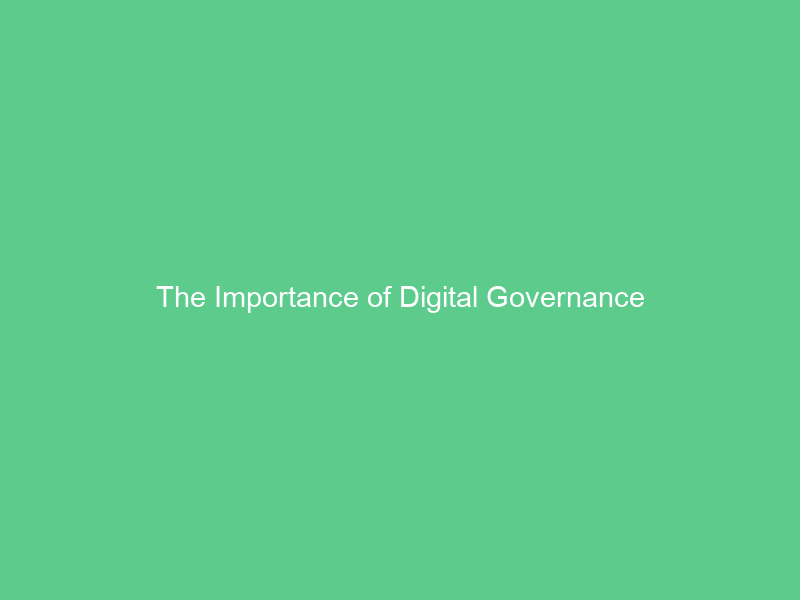Digital governance involves overseeing multiple aspects related to data protection and public transparency, making its adoption essential for creating a sustainable economy. GGI’s board development workshops can teach boards fundamental best practices in digital governance.
The interactive service model can be an effective means of increasing transparency and citizen participation, but misused can create divisiveness or echo chambers if not managed with caution.
Cybersecurity
Cybersecurity is one of the cornerstones of digital governance, impacting all facets of an organization’s operations. This requires developing and implementing sound policies and procedures; providing employees with security awareness training; investing in modern technologies to reduce risks; as well as cultivating an atmosphere of security awareness and accountability within an organization.
Financial organizations are confronting increasingly sophisticated cyber threats, and organizations are finding it challenging to keep pace. In response, banks and financial institutions are employing intelligence-driven strategies for detecting and preventing attacks while strengthening cooperation between peers and government agencies.
These strategies will help to reduce the risk of cyber attacks, defend e-governance systems against criminal hackers, increase citizen trust and safeguard government’s digital infrastructure. However, such efforts require sustained investment, international collaboration and advanced technology, in addition to strong leadership from public leaders as well as strong public support.
Data privacy
As digital governance regulations are constantly shifting, understanding them requires extensive expertise. Organizations increasingly see creating effective structural responses to this complex terrain as a strategic priority.
Data governance involves safeguarding personal information against unintended access and use. To do this, organizations can implement security policies and procedures that outline how data is collected, stored and utilized within an organization as well as conducting regular compliance audits to ensure all activities align with regulatory requirements.
A sound policy framework is required to safeguard data privacy, but only with cooperation between governments and businesses. The Biden administration’s commitment to multilateralism in digital governance must go beyond antagonizing domestic political factions; rather it must include reaching agreements among global communities regarding standards that respect local cultural values while simultaneously guaranteeing their citizens’ privacy protection rights.
Security audits
Security audits enable organizations to identify potential vulnerabilities and risks, while verifying the effectiveness of an organization’s security controls and policies. Security audits play a vital role in achieving success in any cybersecurity strategy; regular security audits should be performed so as to maintain an organization’s strong security posture.
Cybersecurity has quickly become a top priority for companies, especially amid ransomware attacks. To combat these risks, conducting cybersecurity audits to strengthen governance practices and prevent data breaches is vital – this can be achieved through implementing security protocols, encouraging unique password usage and conducting employee training programs.
The United States should strive for global digital governance leadership by advancing its standards through free trade agreements. Doing so is vital in order to counter China and Russia from dominating future global commerce while protecting democracy and human rights. In order to do so, support should be garnered among leading market democracies by skillfully managing domestic political fault lines.
Measuring success
Digital governance is a crucial element of government, ensuring their efficiency and sustainability. This encompasses policies, frameworks, and structures governing data use, cybersecurity issues, citizen interactions in digital environments, as well as making sure public-purpose organisations respond appropriately to public needs.
Metrics-driven governance initiatives require top level sponsorship and leadership within an organisation. To be effective, they must become part of decision making processes while being in alignment with larger organizational goals – this involves setting metrics and dashboards tied directly to decision making processes as well as installing appropriate instrumentation to harvest and aggregate data streams for these metrics.
Digital governance enables citizens to engage directly with government agencies, creating greater transparency, accountability and creating more tech-savvy citizen landscapes. However, this may also increase polarization and echo chambers online – this track invites submissions that examine both challenges and opportunities associated with digital governance.

